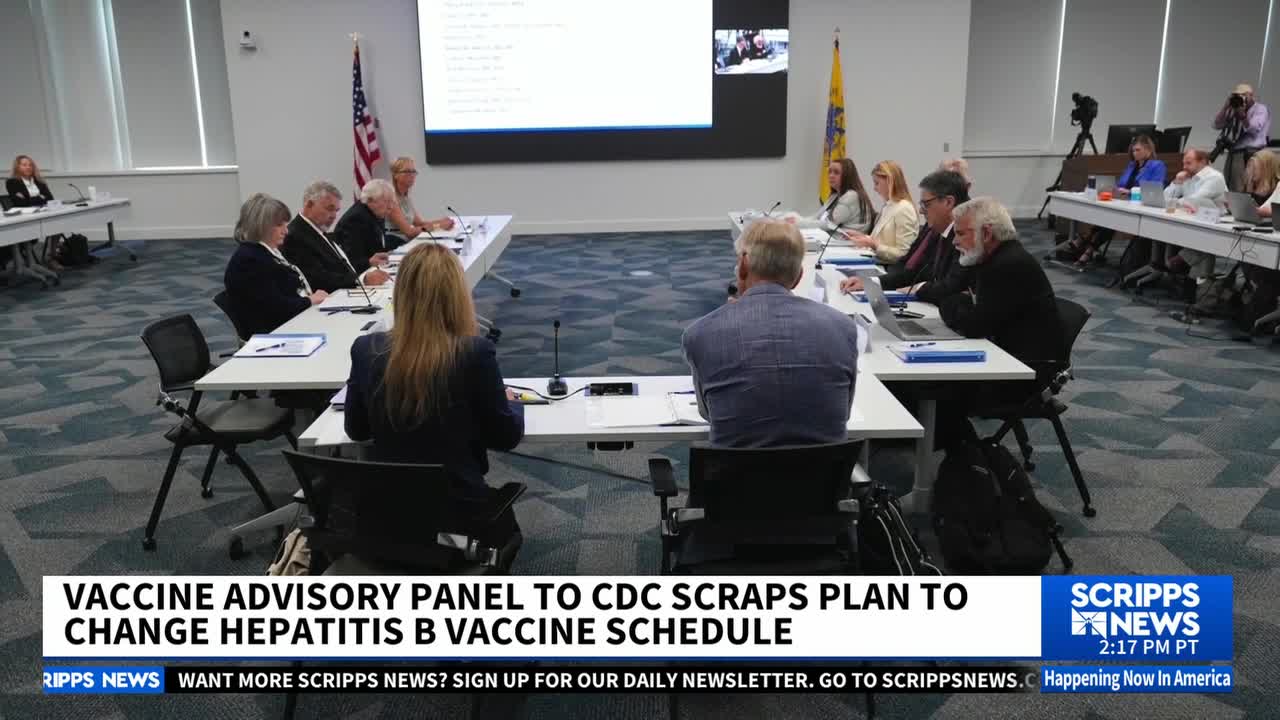The Centers for Disease Control and Prevention’s Advisory Committee on Immunization Practices approved some changes to its recommendations for how and when the COVID-19 vaccine is administered — but ultimately rejected a motion that would have required a prescription for the shot.
The first change unanimously approved by the panel recommends that adults aged 65 and older get a COVID-19 vaccine based on individual-based decision making — and that individuals aged 6 months to 64 years old, a vaccination is recommended based on individual-based decision making, with an added emphasis on providing risk-benefit information.
Another unanimous change recommended that "authorized healthcare providers discuss the risks and benefits of the vaccination for the individual patient."
The panel also approved, 11-1, a new recommendation that vaccine information sheets, something already required by law, be updated to include "at least six risks and uncertainties."
The only recommendation that failed to move forward from the panel in a narrow 6-6 vote was one that would have required a prescription for any individual to receive a COVID-19 vaccine.
Most of the panel members who voted against recommending a prescription requirement — Dr. Hillary Blackburn, Dr. Joseph R. Hibbeln, Dr. Martin Kulldorff, Dr. Cody Meissner, Dr. Raymond Pollak and Dr. Catherine M. Stein— said it would limit access to the vaccine and that pharmacists are more than qualified to discuss any associated risk factors when administering vaccines.
Meissner, who is a doctor of medicine and professor at Dartmouth College with previous board experience, said, "It's essentially going to be a barrier for people to have access to this vaccine, and that is not the role of ACIP."
"If we start asking for prescriptions for vaccines, which are again a primary prevention public health strategy, we are going to overwhelm physicians' offices," said Dr. Amy Middleman, a pediatric physician in Ohio who added that she has served as liaison to the ACIP for over 20 years.
Middleman said it was unclear what the recommendation for a prescription would even mean.
"It's alarming to me that for a primary preventive strategy, we are actually adding access concerns and barriers rather than diminishing them. I think that this is a really important piece of improving public trust in vaccines. The job of the committee is to assess the risk and benefit as a public health strategy that's been done, so we should make it available and accessible," Middleman said.
Those who voted for it — Dr. Evelyn Griffin, Dr. Retsef Levi, Dr. Robert W. Malone, Dr. Kirk Milhoan, Dr. James Pagano and Dr. Vicky Pebsworth — said they had concerns about people being able to make an informed decision on whether or not to get the COVID-19 shot if there were no requirements for them to meet with a health care professional beforehand.
"I don't think it's going to lead to any access problem, because most states have a solution. The states that don't have a solution can either find a solution based on pharmacies or reject that," Levi said. "So in all honesty...I think the message here, the current informed consent process is broken."
During its first meeting day, the ACIP decided to change the minimum age recommendations for the measles, mumps, rubella and varicella (MMRV) vaccine, which combines the MMR vaccine with the chickenpox vaccine.
In an 8-3 vote, the panel decided to change the recommended minimum age to 4 years old, whereas the previous guidelines recommended the MMRV vaccine for children aged 12 months to 12 years old.
The ACIP provides the federal government with guidance on vaccines. Although the CDC makes the final decisions, the panel’s advice often shapes medical guidance nationwide.
Earlier this year, Health and Human Services Secretary Robert F. Kennedy Jr. removed 17 members of the ACIP and appointed 12 new members — five of whom were just appointed last week. The reconstituted panel includes several medical professionals skeptical of past vaccine policies, mostly as they relate to the COVID-19 vaccine.
The panel was presented with various studies on the COVID-19 vaccine, including side effects and economic impact.
One of the studies presented explored a very rare side effect, most commonly occurring in young men, which is a kind of heart inflammation called myocarditis. A scientist who told the panel he was studying whether people with certain genes are uniquely susceptible to that risk said the Trump administration had canceled his grant before the research could be finished.
The panel did hear evidence and opinions on the hepatitis B vaccine and originally planned to vote on two changes for recommendations, but they ultimately decided to table the vote until they review more information.




